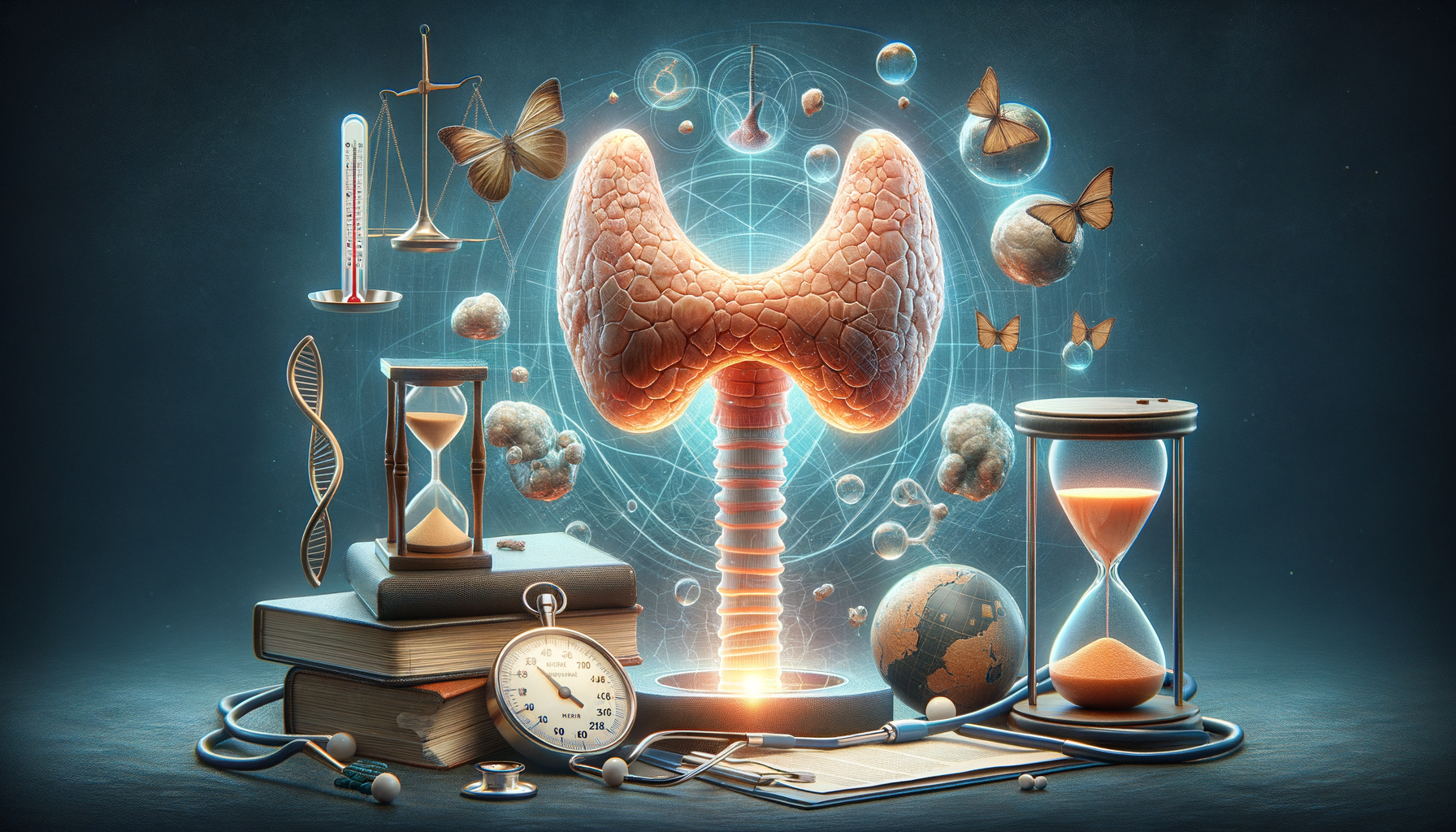
Understanding Thyroid Health Issues in Women
Introduction to Thyroid Health in Women
The thyroid, a small butterfly-shaped gland located at the base of the neck, is a powerhouse of hormone production, influencing nearly every metabolic process in the body. For women, thyroid health is particularly crucial, as they are statistically more likely to experience thyroid issues compared to men. This disparity is due to a complex interplay of hormonal fluctuations, particularly during life stages such as puberty, pregnancy, and menopause. Understanding thyroid health is essential for women, as it can significantly impact overall well-being, energy levels, and even mental health.
Thyroid disorders in women can manifest in various forms, with hypothyroidism and hyperthyroidism being the most common. These conditions can lead to symptoms that are often mistaken for other health issues, making awareness and education vital. By delving into the intricacies of thyroid health, women can better recognize signs of imbalance and seek appropriate medical advice.
Common Thyroid Disorders Affecting Women
Two primary thyroid disorders frequently affect women: hypothyroidism and hyperthyroidism. Hypothyroidism, or an underactive thyroid, occurs when the thyroid gland does not produce enough hormones. This can lead to symptoms such as fatigue, weight gain, and depression. In contrast, hyperthyroidism, or an overactive thyroid, results in an excess of thyroid hormones, causing symptoms like weight loss, rapid heartbeat, and anxiety.
Another significant thyroid disorder is Hashimoto’s thyroiditis, an autoimmune condition where the immune system attacks the thyroid gland, often leading to hypothyroidism. Women are particularly susceptible to this disorder, with studies showing that it affects women approximately seven times more than men. Graves’ disease is another autoimmune disorder that leads to hyperthyroidism and is also more prevalent in women.
Understanding these disorders is crucial, as they can significantly impact a woman’s quality of life. Early detection and management can prevent complications and improve health outcomes. Regular check-ups and awareness of family history can aid in early diagnosis and treatment.
Recognizing the Symptoms of Thyroid Imbalance
Identifying thyroid imbalance symptoms can be challenging, as they often mimic other health issues. However, understanding the signs can lead to timely intervention. Common symptoms of hypothyroidism include:
- Persistent fatigue
- Unexplained weight gain
- Depression and mood swings
- Cold intolerance
- Dry skin and hair
On the other hand, hyperthyroidism symptoms may include:
- Unintentional weight loss
- Increased heart rate and palpitations
- Anxiety and irritability
- Heat intolerance
- Increased sweating
Women experiencing these symptoms should seek medical advice, as thyroid imbalances can lead to more severe health issues if left untreated. Blood tests measuring thyroid hormone levels are typically used to diagnose these conditions.
Impact of Thyroid Disorders on Women’s Health
Thyroid disorders can have a profound impact on women’s health, influencing physical, emotional, and reproductive well-being. Physically, these disorders can lead to significant changes in weight, energy levels, and overall vitality. Emotionally, they can contribute to mood disorders, including depression and anxiety, which can affect personal and professional relationships.
Reproductive health can also be affected, with thyroid imbalances leading to menstrual irregularities, fertility issues, and complications during pregnancy. For instance, untreated hypothyroidism during pregnancy can increase the risk of miscarriage, preterm birth, and developmental issues in the child.
Given these wide-ranging effects, managing thyroid health is crucial for maintaining overall well-being. Women should prioritize regular health check-ups and communicate any concerns with their healthcare providers to ensure optimal thyroid function and health outcomes.
Managing and Treating Thyroid Disorders
Effective management and treatment of thyroid disorders are vital for restoring balance and improving quality of life. For hypothyroidism, synthetic thyroid hormone replacement therapy is commonly prescribed, helping to normalize hormone levels and alleviate symptoms. Regular monitoring and dosage adjustments are necessary to maintain optimal hormone balance.
In the case of hyperthyroidism, treatment options may include antithyroid medications, radioactive iodine therapy, or surgery, depending on the severity and underlying cause. Each treatment has its considerations, and a healthcare provider can help determine the best approach for each individual.
Lifestyle modifications can also support thyroid health. A balanced diet rich in iodine, selenium, and zinc can aid thyroid function, while regular exercise can help manage weight and improve mood. Stress management techniques such as yoga and meditation can also be beneficial, as stress can exacerbate thyroid issues.
By understanding and addressing thyroid disorders, women can take proactive steps to maintain their health and well-being, ensuring that their thyroid gland continues to function optimally.


